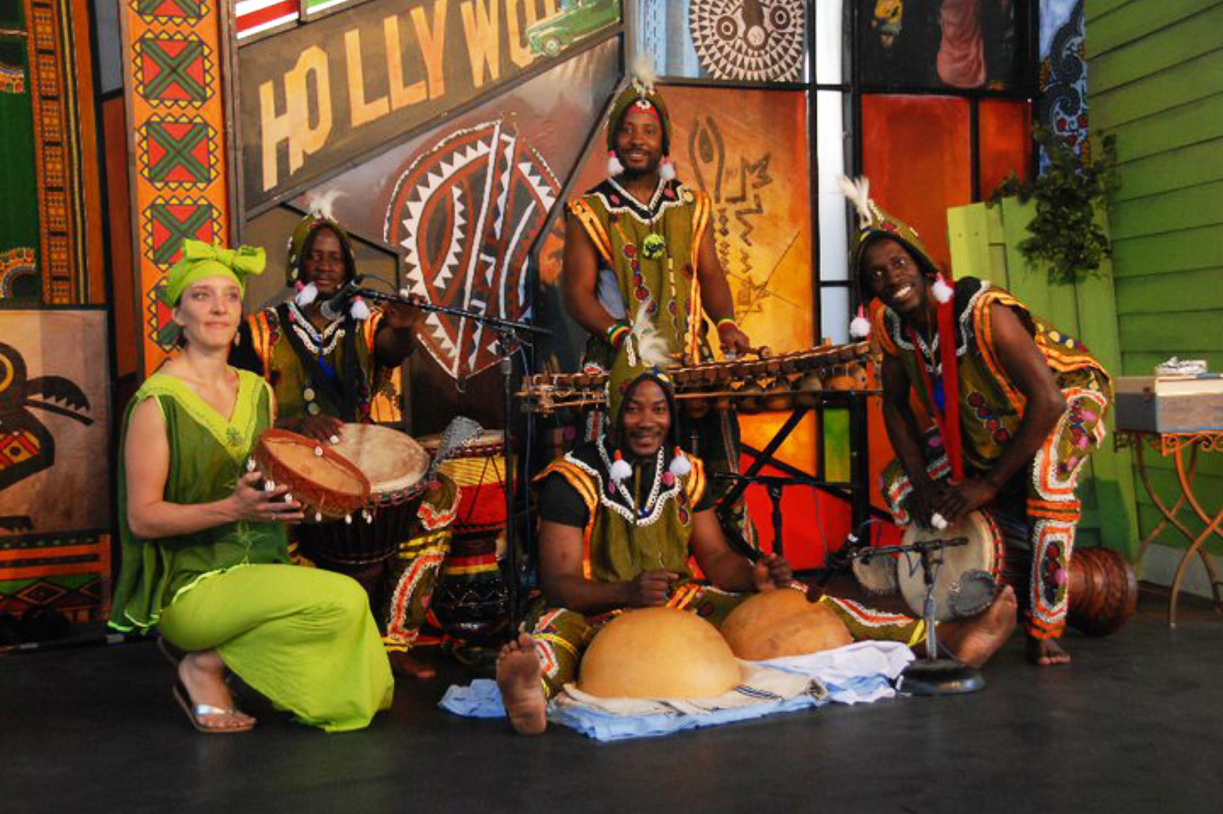West African group DAFRA Drum to perform last show in Fowler series

The DAFRA Drum ensemble from Burkina Faso celebrates West African culture through traditional and contemporary music and dance.
(Courtesy of DAFRA Drum)
By Ashley Vu
Aug. 11, 2014 1:49 a.m.
The heart of West African culture is being set to a beat and rhythm as the DAFRA Drum ensemble prepares to perform at the Fowler Museum on Aug. 17.
As the final concert of the Fowler’s ongoing summer series “Summer Concerts on the Green,” DAFRA Drum is part of a traveling exhibition originally organized in Washington, D.C., called “Earth Matters: Land as Material and Metaphor in the Arts of Africa.”
“The tradition of music and dance is something that is deeply rooted in African culture,” said Greg Sandoval, Curator of Public Programs at the Fowler Museum. “(West African peoples) performed (this music and dance) in communities on the land, and most of the materials are from the land.”
Deriving its name from Burkina Faso’s sacred Dafra River, the DAFRA Drum ensemble aims to showcase its West African roots through a mix of traditional and contemporary dance, music and showmanship percussion.
Before shifting in 1995 into the music and dance ensemble it is today, the DAFRA Drum was originally a comedy troupe created in Burkina Faso by Olivier Tarpaga, DAFRA Drum’s artistic director. Now based in Los Angeles, the DAFRA Drum has since reflected a myriad of West African countries as one unified culture through these countries’ collective history under the Mali Empire.
 The DAFRA Drum ensemble from Burkina Faso celebrates West African culture through traditional and contemporary music and dance.
The DAFRA Drum ensemble from Burkina Faso celebrates West African culture through traditional and contemporary music and dance.
(Courtesy of DAFRA Drum)
“The type of music we are performing is originally from West Africa – it’s not just one country, but it’s a culture that is shared by many countries,” said DAFRA Drum Assistant Director Wilfried Souly. “(The shared culture) allows us to perform with artists from Guinea, Ivory Coast, Mali, and sometimes Senegal.”
As much as these countries share a same traditional background, the West African heritage within DAFRA Drum performances is still teeming with richness and diversity. Tarpaga said that even in Burkina Faso alone, there are over 60 ethnic groups and over 65 languages spoken, and so the amount of distinctive music and dancing styles expressed in the shows is tremendous.
Having performed in over 18 countries in festivals and theaters such as the World Festival of Sacred Music–Los Angeles in the United States in 2008, the Musiques de Jazz et D’Ailleurs in France and the Sacred Arts Festival in Delhi, India, the DAFRA Drum strives to bring the diversity of its traditions to all different peoples across the globe.
In addition, one of DAFRA Drum’s missions is to impart a lasting impact on audiences, reflected not only through the dances and music performed, but the instruments as well.
“‘Djembe’ (a type of drum originating from West Africa) means ‘the instrument that brought peace to its people,'” Tarpaga said. “It’s important to have one of our principle instruments be (the djembe drum) in terms of how we impact people’s lives and smiles.”
Souly said that the element of audience interaction is essential, and the DAFRA Drum typically includes audience members in its performances. His hope is that this will make for a more relatable and enriching experience for viewers.
This audience interaction extends about two-and-a-half hours before the DAFRA Drum show, when Fowler will host a crafting activity for audience members to make and decorate African masks.
“(The mask-crafting) is something that will really enhance their experience rather than (having) a static museum experience of just looking at the works on the wall or sculptures on the floor,” Sandoval said. “It’s about something that’s a little more interactive and people having a deeper connection to that whether that’s through hands-on activities or through experiencing music and dance.”
While audience participation is crucial to the DAFRA Drum performances, the message of crossing cultural borders through art is apparent.
“Our goal is to open the mind of our audiences – to make them discover different cultures,” Souly said. “We do not just play a rhythm just to entertain people, but we also explain to them why we are playing that rhythm and what it means.”


